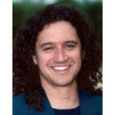While not the first person to teach meditation in the West, Maharishi Mahesh Yogi has been one of the more influential meditation teachers of our times. You probably recognize his photo even if you didn't recognize his name. And if his photo isn’t familiar to you, chances are good that you would know him as the person who founded TM® or Transcendental Meditation ®.
What you may not know is that he is also the founder of Maharishi International University, a school located in a small town called Fairfield, Iowa. However, let's go back for a moment and talk a bit more about Transcendental Meditation ®.
In promoting Transcendental Meditation®, Maharishi Mahesh Yogi made a brilliant choice. He attempted to make Transcendental Meditation® appear scientific. He presented studies that he claimed showed practicing TM® resulted in reductions in anxiety and stress, as well as various other improvements in health. He also seemed to show that locations that were having difficulties, such as a high crime rate, would experience improvements in their problems if enough people practiced Transcendental Meditation ® nearby.
The problem is that the science behind these sorts of studies doesn’t actually support his theories. At all.
My suggestion is that you take a look at both the studies themselves and the criticisms of them, particularly the ones about reducing crime rates, to see what I mean.
In the meantime, I think it’s crucial for us to realize how easily we can be influenced whenever we hear, "Scientists say "X" is good for you!"
We have this tendency to unthinkingly trust whatever is being said by those in white coats, instead of questioning the scientists to find out things like: Was this study funded by someone who wanted to see a particular outcome? Is the study even a good one? Do the results actually mean what you say they mean?
I'm thrilled about all the meditation research that is being done, no matter whether it's about Vipassana meditation, Tibetan meditation or Zen meditation or Transcendental Meditation®. I expect that some meaningful research will eventually come out that can help us cut through the mythology and clutter that has been woven around meditation for a very long time.
Still, I recognize that there are many researchers who are biased by a commitment to prove that meditation has some list of practical, physical and even maybe political benefits, and this renders their studies biased. Some studies are so tainted with bias that they are useless.
More research has likely been done on Maharishi Mahesh Yogi's Transcendental Meditation® than other meditation programs. However, most of that research was funded and carried out by people who believed in or were at least sympathetic to the claims of TM®. When examining those studies, it’s important to remember that the studies only include people who have already spent money – frequently a great deal of money – to become trained in TM®.
Given the improvements in brain image technology and the fact that we now have more meditation history here (although 100 years or so still isn't much compared to where the Maharishi Mahesh Yogi is from, where people have meditated daily for many thousands of years), I imagine we will learn a lot in the near future about what meditation actually does, the best ways to learn meditation, and what sorts of benefits are realistic to expect from it.
(BTW, TM® and Transcendental Meditation® are registered trademarks of the Maharishi Foundation, Ltd.)
Steven Sashen began meditation when he was eight years old, was one of the first biofeedback pioneers, and researched cognition and perception at Duke University. In addition to a successful career as an entrepreneur and entertainer, Steven has taught transformational techniques around the world and developed the Instant Advanced Meditation Course, which Dr. Gay Hendricks calls, "Perhaps the fastest and easiest way to relax, expand awareness, and find deep inner-peace."
Additional Resources covering Meditation can be found at:
Website Directory for Meditation
Articles on Meditation
Products for Meditation
Discussion Board
Steven Sashen, the Official Guide To Meditation


